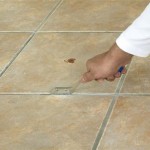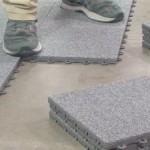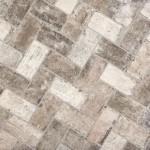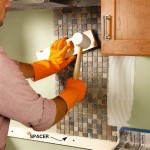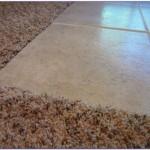Can You Put Tile On Shower Walls?
The use of tile on shower walls is a common and well-established practice in residential and commercial construction. Tile offers a durable, water-resistant, and aesthetically versatile surface for shower environments. However, the success of a tile installation in a shower depends on a variety of factors, including proper material selection, meticulous preparation, and adherence to best practices. This article explores the feasibility of using tile on shower walls, detailing the key considerations and potential challenges associated with this type of installation.
The Allure of Tile in Shower Environments
Tile's popularity in shower construction stems from several key advantages. Its inherent water resistance makes it an ideal barrier against moisture penetration, preventing water damage to underlying structures. Moreover, tile is available in a vast array of materials, sizes, colors, and patterns, offering extensive design flexibility. From classic ceramic and porcelain to modern glass and natural stone, the options are virtually limitless, allowing homeowners and designers to achieve a wide range of aesthetic goals. Furthermore, tile is relatively easy to clean and maintain, contributing to a hygienic and long-lasting shower environment.
The durability of tile is another significant advantage. When properly installed and maintained, tile can withstand the constant exposure to water, humidity, and temperature fluctuations that are characteristic of shower environments. Choosing the right type of tile for the specific application is crucial to ensuring its longevity. For instance, porcelain tile is generally preferred for shower walls due to its low water absorption rate and high resistance to cracking and chipping. Ceramic tile is a more affordable option, but it may not be as durable as porcelain, especially in high-moisture areas. Natural stone tiles, such as marble or granite, can add a touch of luxury to a shower, but they require more careful maintenance and sealing to prevent staining and water damage.
Beyond its functional benefits, tile enhances the visual appeal of a shower, contributing to the overall aesthetic of the bathroom. The diverse range of styles and finishes allows homeowners to create a personalized and stylish shower space. Whether opting for a minimalist and modern look or a more traditional and ornate design, tile provides the means to achieve the desired outcome. The use of decorative accents, such as mosaics, borders, and accent tiles, can further enhance the visual interest and create a unique and inviting shower environment.
Key Considerations for Tile Installation on Shower Walls
While tile offers numerous benefits for shower applications, a successful installation requires careful planning and execution. Several critical factors must be considered to ensure that the tile performs as expected and provides long-lasting protection against water damage. These factors include substrate preparation, waterproofing, mortar selection, grout selection, and proper installation techniques.
The substrate is the underlying surface to which the tile is applied. It must be structurally sound, clean, and level to provide a stable base for the tile. Common substrates for shower walls include cement board, drywall, and plywood. Cement board is the preferred substrate for shower applications due to its water resistance and dimensional stability. Drywall is not recommended for shower walls unless it is specifically designed for wet environments and properly sealed. Plywood should be avoided altogether, as it is susceptible to water damage and may warp or rot over time.
Proper waterproofing is essential to prevent water from penetrating the substrate and causing structural damage. A waterproof membrane should be applied to the substrate before installing the tile. There are several types of waterproofing membranes available, including liquid-applied membranes, sheet membranes, and cementitious membranes. Liquid-applied membranes are easy to apply and can create a seamless waterproof barrier. Sheet membranes are pre-formed and can be installed quickly, but they may require more precise cutting and fitting. Cementitious membranes are a mixture of cement and additives that create a waterproof coating. The choice of waterproofing membrane depends on the specific requirements of the project and the installer's preferences.
The selection of the appropriate mortar is another crucial factor in tile installation. Mortar, also known as thin-set, is the adhesive that bonds the tile to the substrate. It is important to choose a mortar that is specifically designed for wet environments and compatible with the type of tile being used. Modified thin-set mortars are typically recommended for shower applications, as they contain polymers that enhance their water resistance and bond strength. The mortar should be mixed according to the manufacturer's instructions and applied evenly to the substrate using a notched trowel.
Grout fills the spaces between the tiles and seals the surface, preventing water from penetrating the underlying layers. The choice of grout is also important, as some types of grout are more resistant to water and staining than others. Epoxy grout is a popular choice for shower applications due to its superior water resistance and durability. Cementitious grout is a more affordable option, but it requires regular sealing to maintain its water resistance. The grout should be applied evenly and thoroughly, and any excess grout should be removed promptly to prevent staining the tile surface.
Finally, proper installation techniques are essential for a successful tile installation. The tiles should be aligned accurately and spaced evenly, creating a uniform and aesthetically pleasing surface. Using tile spacers can help ensure consistent spacing between tiles. The tiles should be pressed firmly into the mortar to ensure good adhesion. After the mortar has dried, the grout can be applied. The grout should be allowed to cure properly before the shower is used. Following these installation guidelines will help ensure that the tile performs as expected and provides long-lasting protection against water damage.
Potential Challenges and Considerations
Despite the advantages and established practices surrounding tile in shower environments, certain challenges and considerations can arise during installation and maintenance. Failing to address these issues can lead to premature failure of the tile system, requiring costly repairs or replacements.
One common challenge is the potential for water leakage. Even with proper waterproofing, water can still penetrate the tile system through cracks in the grout or mortar, or around fixtures and fittings. Regular inspection of the grout and sealant is essential to identify and address any signs of damage. Re-grouting and re-sealing should be performed as needed to maintain the integrity of the waterproof barrier.
Another challenge is the risk of mold and mildew growth. Shower environments are ideal breeding grounds for mold and mildew due to their high humidity and constant exposure to water. Regular cleaning and ventilation can help prevent mold and mildew growth. Using mildew-resistant grout and sealant can also help reduce the risk of these problems.
The choice of tile material can also impact the longevity and performance of the shower installation. Certain types of tile, such as natural stone, are more porous and susceptible to staining than others. These materials require more careful maintenance and sealing to protect them from damage. It is important to research the properties of different tile materials and choose the one that is best suited for the specific shower environment.
Furthermore, the cost of tile installation can be a significant consideration. Tile installation can be a labor-intensive process, and the cost of materials and labor can vary widely depending on the type of tile, the size of the shower, and the complexity of the design. Obtaining multiple quotes from qualified contractors is recommended to ensure a fair price. While attempting a DIY tile installation may seem cost-effective, improper installation can lead to costly repairs down the line. It is often advisable to hire a professional tile installer to ensure a successful and long-lasting installation.
Finally, it is important to consider the long-term maintenance requirements of tile in shower environments. Regular cleaning and sealing are essential to maintain the appearance and integrity of the tile. Using harsh chemicals or abrasive cleaners can damage the tile surface and grout. It is recommended to use gentle cleaning products specifically designed for tile and grout. Regular maintenance will help extend the life of the tile and prevent costly repairs in the future.

How To Install A Shower Tile Wall Bathroom

Part 1 How To Install Tile On Shower Tub Wall Step By

The Complete Guide To Installing Tile On Shower Or Bathtub Walls

How To Tile Shower Bathtub Walls The Ultimate Guide Handyman Startup

Diy Bathroom Wall Tile And Tiling Guide For Beginners

Shower Tile Installation Step By Four Generations One Roof

Shower Wall 10 Tile Trends That You Should Consider Stone Depot

How To Tile A Bathroom Shower Walls Floor Materials 100 Pics Pro Tips

How To Tile Shower Walls And Surround

How To Tile A Shower At Home Diy Guide For Beginners
Related Posts

